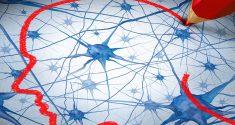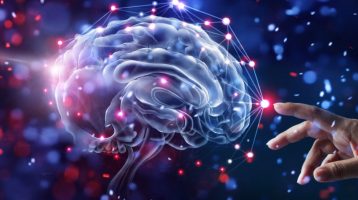Melatonin may be a viable option to help treat many neuropsychiatric disorders, according to a recent study published in the Egyptian Journal of Basic and Applied Sciences. Produced naturally by the pineal gland, melatonin is a hormone that is secreted according to the body’s circadian rhythm, or 24-hour sleep/wake cycle. Various neuropsychiatric disorders (mental disorders that are linked to diseases of the nervous system) have been found to involve deficiencies or abnormalities of the body’s melatonin levels. Such disorders can include anxiety, panic disorder, migraines, depression, insomnia, narcolepsy, epilepsy, schizophrenia, Parkinson’s disease, autism and Alzheimer’s disease. The study discussed in this article examines some of these disorders and how melatonin can play a role in treatment.
Circadian rhythm is one of three basic cycles studied in chronobiology. It plays an important role in physiological functions of the body such as heart rate, cell metabolism and immune response. Abnormal circadian cycles can result in physiological and psychological imbalances, which can lead to neuropsychiatric disorders. With its profound effect on circadian rhythms, melatonin is increasingly being looked at as a potential treatment for these types of disorders.
Anxiety
Several studies have found a positive effect of melatonin on anxiety and panic disorders. In a 2013 study, nighttime dosages of melatonin were administered to mice. The mice had been exposed to chronic mild stress. With the administration of melatonin, the stress-exposed mice had decreased symptoms of anxiety (including less weight gain, decreased behavioral despair and cognitive dysfunction), indicating that melatonin could play a viable role as an antidepressant.
Another study evaluated anxiety levels and pain scores in patients who were about to undergo cataract surgery. In a group of 60 patients, some received melatonin pre-surgery, while the other patients received a placebo. Several measurements were recorded, such as verbal anxiety and pain scores, heart rate, blood pressure and intraocular pressure. While the two groups of patients did not show significant differences in pain scores, heart rate, blood pressure or intraocular pressure, there was a significant difference in their verbal anxiety scores. Patients who had received melatonin showed much lower levels of anxiety.
Schizophrenia

Alzheimer’s Disease
Alzheimer’s disease (AD) is a progressive, neurodegenerative disease that causes memory loss and changes in thinking and behavior that worsens over time. Melatonin levels are reported to be much lower in Alzheimer’s patients compared to control groups, therefore, it is hypothesized that melatonin can play a role in its treatment. In a 2012 study, melatonin was administered in conjunction with physical exercise. This treatment lessened cognitive damage and brain oxidative stress, which are contributing factors to AD.
Attention-Deficit/Hyperactivity Disorder
Sleep disorders are common among children with attention-deficit/hyperactivity disorder (ADHD). A current study looked at long-term usage of melatonin and its effectiveness in helping children with ADHD. Based on parental reporting, 88 percent of the children treated experienced improvements in sleep-related problems. Additionally, 71 percent were reported to experience an improvement in behavior and 61 percent experienced an improvement in mood.
Hope for the Future
In addition to the diseases discussed here, several other neuropsychiatric disorders seem to be linked to disrupted sleep patterns and abnormal melatonin levels. Based on scientific evidence, there are increasing indications that melatonin can play a positive role in the management and treatment of many types of neuropsychiatric disorders.







